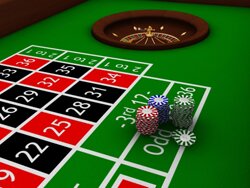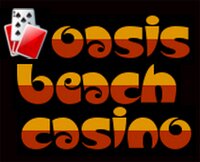Systems
Roulette Systems
There have been many attempts to develop a foolproof system that consistently increase their expected profits. However, many of these systems have flaws. Despite these flaws, the followers of roulette continue and will continue looking for the fountain of youth.
Some people preach that they know how to beat roulette, and sell publications about it, but sometimes this can be a pco suspect.

After all, if anyone knows how to beat roulette, Jackpot-City-Canada.com playing it would millionaire and would not need to disclose whether idea. Here’s an example: no matter what your bet on the roulette table, the house will always have an advantage of at least 5.26%. In some cases, the advantage may be even greater, as when you make a bet to five. This means that 5.26% home win over the bets on the table which will lose. At a closer look, one can realize that there are still more elements to be analyzed. Say you bet on two entire columns in the same spin of the wheel. The odds of winning are 24 to 14.
The odds of winning are in your favor. However, although the odds are in your favor, the payments you receive if you win not outweigh the risk he ran. That’s where the house edge. Basically, if you bet $ 12 to each of the two columns on the roulette table, and win, you will receive $ 12. However, when the odds are 24 to 14, the casino should pay $ 14. The casino benefits by taking $ 24 if you lose and pay only $ 12 (not $ 14) if you win. The casino knows that long term can win, even when the odds are against him.
False logic Martingale System
Apparently this system has gained some adherents. His mechanics is: make an outside bet (of which are nearly 50% chance of winning). If you lose, bet double what you bet initially in the same place. If you lose again, bet again, this time with double the total amount wagered above. The theory holds that in the end, you have to win some time and bet an amount over-compensate what you lost, you will win.
This logic, however, is not effective in most casinos. First, you have 50% chance, because the zeros. Second, casinos avoid the use of this system by placing maximum bets. That is why the maximum bets. With this limit, you may not recover your losses. Your losses may be $ 5, $ 10, $ 20, $ 40, $ 80, $ 160, $ 320, and then $ more than the limit. You lose those amounts and the table limit is $ 320 you will not be able to recover them in the next turn. This is the reason why the system is not as effective Martingale.
The same story is repeated with the other systems. This is not to say that efforts to design a useful system useless, just not sufficiently neutralize the house advantage. However, there are elements useful in these theories. The betting system divided along the table extends the time you can spend at the table betting.
Nor do we mean that no efforts are made to find a system that substantially reduces the house edge. One such effort is to look biased roulette. That can be effective but not easy. Surely someone has already made money playing roulette biased, but finding a lot of work. A spinner can be biased by wear, as they are extremely expensive, some casinos will probably not change for long. Virtual roulette case, bias can be found by statistical software testing to see if the wheel tends to favor some number. If you find the fault can capitalize. All this hard time. Even if you find that imperfect roulette, (which in itself a lot of effort), now has to find out where the fault. To do this you need to have a team that is capable of statistical bias found. In real casinos, but there are surveillance methods that prevent customers use electronic devices to study their spinners. Virtual casinos also have programs detection systems used for this purpose.

